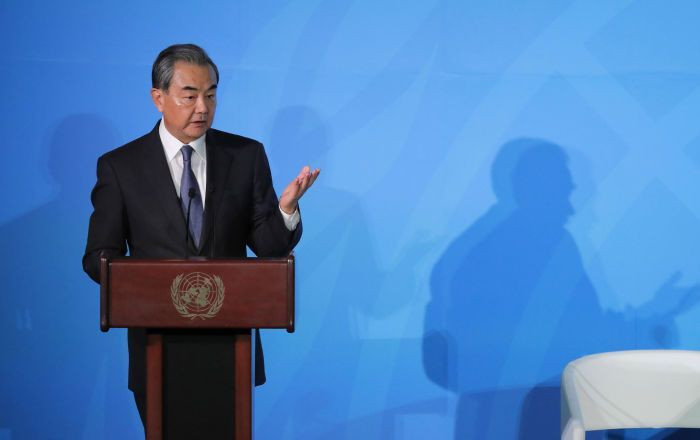After the US exempted hundreds of products from a 25 percent tariff on US$250 billion worth of Chinese products that include Christmas tree lights, pet supplies, and plastic drinking straws, China buys pork and soybeans as a goodwill gesture before another set of high-level trade talks happen in Washington next month.
According to a market analyst, last week, Beijing bought about 600,000 tons of US soybeans.
Many are thinking this purchase as a sign of easing tensions between the two countries.
Li Qiang, chief analyst at Shanghai JC Intelligence Co Ltd said this could become 6 million tons after new tariff waivers get issued by Beijing.
Commerce ministry spokesman Gao Feng said that China's demand for "high-quality agricultural products is very large" and added that he hoped that both countries could "create beneficial conditions."
He also added that the two countries are "currently maintaining close communications" for preparations of positive progress based on equality and mutual respect in the forthcoming trade talks.
China bought 32 million tons of US soybeans before putting on retaliatory tariffs last year.
US President Donald Trump praised the recent Chinese purchases and said that a trade agreement would happen sooner than people think.
China's move on US pork and soybeans made Trump do an unexpected announcement on the postponement of the October 15 tariff increase on Chinese products that is in its $250 billion of yearly imports.
Data from the US Department of Agriculture shows there were a combined sales of 720,000 tons of soybeans to China on September 13, 16 and 17 by private exporters.
Wang Yi, China's state councilor and foreign minister confirmed that the Trump administration waived tariffs on many Chinese products.
He added, on the sidelines of the United Nations General Assembly's annual gathering of world leaders, that on "the Chinese side" the government is "willing to buy more products needed by the Chinese market."
Wang's statement caused US stocks to increase on Thursday afternoon.
Vice-Premier Liu He will lead the Chinese delegation to Washington at the start of October to meet with US counterparts led by trade representative Robert Lighthizer and US Treasury Secretary Steven Mnuchin to find a way out of the 15-month-old trade conditions between the two biggest economies that disrupted financial markets and the global supply chains.
Preliminary talks last week in Washington were "constructive" according to the Chinese representatives, while the Office of the United States Trade Representative said the talks were "productive."
Suspicion arose that the talks ran into problems after a vice Chinese agriculture minister canceled a trip to US farming states.
However, Beijing and Washington said that this suspicion isn't true.






